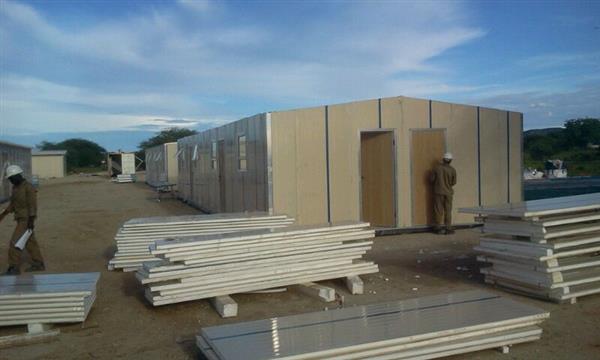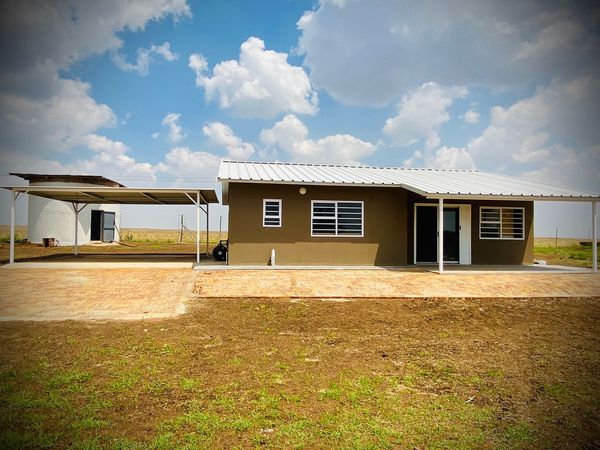In today's fast-paced world, the construction industry is evolving rapidly, and one innovation that has taken center stage is the concept of prefabricated houses. These modern marvels are transforming the way we think about construction, offering a sustainable, cost-effective, and versatile alternative to traditional building methods.

Mining Camps:
Remote mining operations often necessitate housing for workers in rugged and isolated locations. Prefabricated houses are well-suited for this purpose due to several key advantages:
Speed of Construction: In remote areas, traditional construction can be slow and costly. Prefabricated houses, on the other hand, can be produced in a factory setting while site preparations are underway. This parallel construction process significantly reduces the time needed to provide accommodations for mining personnel.
Portability: Prefab houses can be easily transported to remote sites. This portability is essential for accommodating the transient nature of mining projects. As one mining operation completes, the houses can be disassembled and moved to the next location.
Schools:
The demand for educational facilities is on the rise worldwide, and prefabricated houses offer a practical solution for addressing this need:
Quick Construction: As the student population grows or in the event of natural disasters damaging existing schools, there's often a need for rapid construction. Prefabricated classrooms and school buildings can be manufactured and assembled swiftly, reducing disruption to education.

Customization: Schools can be designed and customized to meet specific educational needs, with considerations for classroom layout, technology integration, and energy efficiency.
Clinics:
Healthcare facilities are essential, especially in underserved areas. Prefabricated clinics offer several advantages in meeting this critical need:
Timely Access to Medical Services: Prefabricated clinics can be set up quickly, helping communities gain timely access to medical services, especially in remote or disaster-affected areas.
Tailored Design: These clinics can be designed to suit the specific healthcare requirements of the community they serve, with space for examination rooms, waiting areas, and storage.
Hygiene and Efficiency: Modern prefab clinics are constructed with healthcare standards in mind, ensuring a clean and efficient environment for patients and medical staff.
Offices:
Businesses require versatile office space solutions, and prefabricated office units offer numerous benefits:
Customization: Prefabricated offices can be tailored to meet the unique needs of various industries. From open-plan layouts for creative industries to cubicle-style layouts for corporate environments, these structures can be customized accordingly.
Quick Expansion: Businesses experiencing growth can easily expand their office space with additional prefab units, ensuring they have room for more employees without the delays associated with traditional construction.
Energy Efficiency: Many prefabricated office units are designed with energy-efficient features, which can lead to cost savings over time.
Accommodation Units:
Prefabricated houses serve various accommodation needs, from disaster relief to long-term housing solutions:

Disaster Relief: In the aftermath of natural disasters, providing temporary housing is critical. Prefabricated units can be rapidly deployed to offer shelter to those displaced by calamities.
Long-Term Housing: Prefabs are not limited to temporary solutions. They can also serve as long-term residential buildings, providing durable and comfortable homes for families, students, or individuals in need of affordable housing.
0 Comments